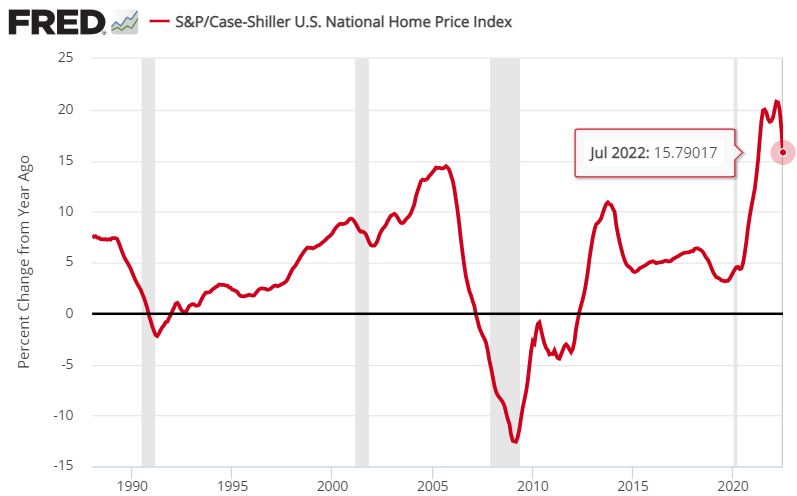* Rishi Sunak is set to become Britain’s new prime minister
* Global tension on track to rise as Xi secures third term to lead China
* US rebuts Russia’s claim that Ukraine may use dirty bomb and blame Moscow
* The two Koreas exchange warning shots along disputed sea boundary
* China releases delayed Q3 GDP data, which shows modest rebound in output
* Eurozone economic contraction deepens in October via PMI survey data
* UK economic downturn accelerates in October, PMI survey data shows
* Illegal border crossings into US set to reach record high
* Federal Reserve on track for another 75-basis-points rate hike in November
* US Treasury real yields remain near 13-year highs:
US home prices are expected to continue falling in 2023, economist predicts. “We expect home sales to keep falling until early next year,” advises Ian Sheperdson, chief economist with Pantheon Macroeconomics. “By that point, sales will have fallen to the incompressible minimum level, where the only people moving home are those with no choice due to job or family circumstances,” he said. “Discretionary buyers are disappearing rapidly in the face of the near-400 [basis point] increase in rates over the past year.”

Bond market turbulence will persist, analyst advises: “Bond market volatility will stay elevated for the next six to 12 months,” predicts Anwiti Bahuguna, portfolio manager and head of multi-asset strategy at Columbia Threadneedle. But Steve Bartolini, portfolio manager of fixed income at T. Rowe Price, reasons: “If they pause after inflation is falling and the economy is slowing then market volatility will decline. The day the Fed pauses should see volatility decline, but we are unlikely to go back to the low vol regime of the 2010s.”
Interest rate hikes could take several years to tame inflation, studies show. The Wall Street Journal reports: “A 2013 review by Tomas Havranek and Marek Rusnak of the Czech central bank of dozens of earlier papers concluded the maximum impact on inflation takes two to four years in advanced economies. In the UK, a 1 percentage-point increase in the policy rate reduces output by 0.6% and inflation by up to 1 percentage point after two to three years, according to a 2016 paper by James Cloyne, then of the Bank of England, and Patrick Hürtgen of Germany’s Bundesbank.”

